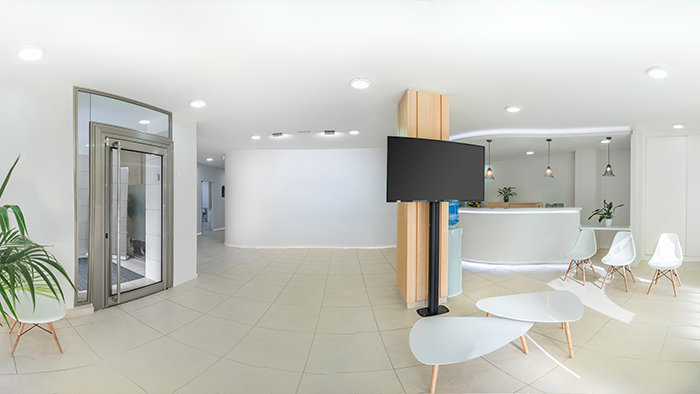
Business
Preparing to Exit: What Medical Spa Owners Should Know Before Selling Their Practice
By XiteAs the medical aesthetics industry continues to mature, many medical spa owners are beginning to think seriously about retirement ...
Posted By Mike Meyer, Thursday, March 19, 2020

By Weave
Our society is in the middle of a pandemic. It remains unclear what will unfold in the days to come, but many businesses are already shortening hours, canceling appointments and sending their employees home to work. These temporary arrangements have already affected the stock market, millions of workers and consumers everywhere.
The technological sophistication of our society has mitigated some of the problems caused by COVID-19, or coronavirus. Some businesses, especially those that rely heavily on tech for their existence, have allowed their employees to self-quarantine while also staying productive. Consumers who are trying to isolate still have the option of ordering supplies from online sources instead of fighting the crowds at the local grocery store.
Unfortunately, not everyone has the luxury of working and shopping from home. Plenty of businesses, specifically those in the service industry, can't maintain their profit-stream without providing direct care to their clients. Customers are equally reliant on thriving businesses in the service industry.
At Weave, our chief objectives during this pandemic are helping organizations keep their employees and customers safe and educating business owners on how our complete business toolbox facilitates higher levels of safety.
This article will discuss ten specific ways to make businesses safe for both workers and clients as coronavirus spreads. We hope it empowers businesses to adjust to the threat of COVID-19 and even thrive under these conditions.
For many businesses in health care, recommendations have already been made to limit appointments to emergent visits only. If you are staying open, here are a few tips to help limit the spread of COVID-19.
Avoiding large groups of people is the most common directive given by public health officials during this crisis. The president has recommended no gatherings of more than 10 people. Though waiting rooms don't generally amass huge numbers of people, they still make already paranoid consumers a little more on-edge. Patients are trying to avoid health care facilities unless they absolutely need care.
To put their customers at ease, businesses shouldn't try to sweep this concern about waiting rooms under a rug. They should accept the fact that waiting rooms are a concern for their clients.
Businesses can keep customers calm by encouraging them to stay in their cars upon arriving at their appointments. If they check in from their cars, patients can wait until professionals are completely ready to see them before entering a business. This adjustment to standard protocol lessens anxiety about catching a virus in the waiting room and ensures clients attend their already scheduled appointments.
Many restaurants and grocery stores are proactive about telling their employees to wash their hands thoroughly after taking breaks and using the restroom. As COVID-19 continues to spread across the globe, hygiene has become a pressing issue not only in the food-service industry, but for all of society.
Those businesses that fail to show commitment to raising awareness about hand-washing and other good hygienic practices risk alienating their customers. Organizations need to demonstrate a new resolve surrounding the issue of hygiene.
This heightened awareness starts with proper signage being posted throughout physical locations. Your office staff should be posting educational information regarding hand washing in clear sight for both employees and customers. Other communication lines can also be used to notify clients about the need to be extra attentive in preventing the spread of coronavirus.
Markets have shown some levels of instability in the short period of time since the initial outbreak of COVID-19. Whether or not the advance of the virus will cause an economic recession is still up in the air. Whatever happens, businesses are preparing for an uncertain future by securing preexisting revenue streams.
The process of solidifying financial security doesn't need to be exploitative to succeed. Collecting payments from customers is an essential part of any industry, and panic about germ-covered money and waiting rooms cut into the ability of businesses to continue to properly collect payments during a pandemic.
Businesses can bolster their ability to collect payments in at least two ways. They should provide their clients with as many payment methods as possible to avoid fears around infection spread by cash, checks and credit cards. If customers are trying to stay out of waiting rooms, finding other, simpler methods to collect dues, such as a text-to-pay option, prevents them from having to hang out at the front desk for any length of time.
Payments aren't the only aspect of running a business that could be potentially strained by coronavirus. Already, people are cancelling many of their plans, from dates to weekend plans to vacations. These cancellations impact businesses, too; anything that involves humans gathering together is seen as potentially dangerous.
While those consumers with the luxury of not going to their doctor, mechanic or accountant might be justified in doing so, lots of others will still need vital services. In fact, they will be eager to step into the gaps in your calendar in order to get the services they need sooner.
Anything your administrative team can do to fill empty time slots will go a long way toward preventing losses in revenue. By contacting clients about upcoming availabilities, your business can limit and even take advantage of recently vacated appointment times.
Amidst the low-level chaos created by COVID-19, some businesses are making changes to their schedule without letting their customers know. This sort of mistake seems like a natural outgrowth of a pandemic.
However, businesses that want to keep their customers loyal and satisfied should be taking the time to update all their company information, including things like their voicemail and office hours. Even if these changes are only temporary, they keep business running smoothly and minimize missed appointments caused by incorrect information.
Updating voicemail can be a bit of a hassle for administrative teams, especially if the technology used to make these updates is old-fashioned. Something as simple as notifying customers about temporary office hours becomes a major project without the proper means, but you need to keep your customers informed.
Click here to read more about this topic from Weave.
Weave is an AmSpa Platinum Vendor Member. Weave prepares your front office with instant information and action items for every patient interaction, keep everyone on the same page with knowledge-sharing tools, fill in gaps with automation, and improve everything with analytics. It all works seamlessly with your team to create great experiences.
AmSpa Members get 50% off activation—a $500 value. Please mention you are an AmSpa Member when you sign up to make sure you receive your discount.
Related Tags
Medical spa news, blogs and updates sent directly to your inbox.

Business
By XiteAs the medical aesthetics industry continues to mature, many medical spa owners are beginning to think seriously about retirement ...

Business
By Adam Reinebach, Chief Executive Officer, American Med Spa Association (AmSpa)Since stepping into the CEO role at AmSpa, I’ve spent ...

Business
By Medical Marketing WhizAs the year comes to a close, now is the perfect time to reflect on what’s working—and ...

Business
By Eric Atienza, Assistant Director of Digital Marketing and Marketing TechnologyMore and more people are turning to med spas for ...